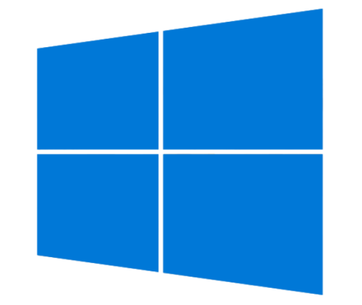Microsoft has updated the core of Windows
Microsoft has released a set of updates for Windows, most of which are focused on fixing bugs in Windows 8.1 and RT 8.1. We are talking about the following updates: KB3084905 , KB3087390 , KB3087041 , KB3087137 , KB3082353 , KB3080042 , KB3073874 , KB3080800 , KB2999226 . These updates do not fix any security vulnerabilities in Windows components, but are aimed at fixing various bugs that violate the operating system's performance.

Update KB3084905 ( TPM lockout occurs unexpectedly ) fixes bugs in EFI firmware and system files related to the earliest stage of OS loading and virtualization (Bootmgr.efi, Winload.efi, Winload.exe, Hvax64.exe, Hvloader.efi, Hvservice. sys, etc.) for the above Windows 8.1 and RT 8.1. The update fixes a bug when components with a TPM (Trusted Platform Module) hardware malfunction, which can lead to blocking of the module and subsequent malfunction of all applications with it.
')
Another update KB3087390 ( Application may crash with 0x8002801D error in Windows 8.1 or Windows Server 2012 R2 ) fixes a bug in the Windows 8.1 / RT 8.1 kernel file and system files, including, Ntoskrnl.exe, Ntdll.dll, Ntvdm64.dll, Wow64. dll, Advapi32.dll. The bug to be fixed led to the incorrect behavior of the OS components when programs work with the system registry section for COM objects.
Update KB3082353 ( Windows 8.1 or Windows Server 2012 R2 hosts crash when they set up IPSec tunnel ) fixes a bug in the Wfplwfs.sys driver and the system libraries Bfe.dll, Fwpuclnt.dll, Ikeext.dll, which are used to implement the IPSec protocol set. An application using IPSec services may crash.
For Windows 10, the company also released a cumulative update KB3095020 ( Cumulative update for Windows 10: September 15, 2015 ). Since Microsoft does not publish the details of the Windows 10 update information, with the standard wording of Windows 10 , you can’t say exactly what this update does. At the same time, according to the list of files to be fixed, it is clear that the above-mentioned system components for working with UEFI, which are used at an early stage of the OS boot, as well as the system kernel files, are also subject to correction.
We encourage users to upgrade their copies of Windows.

Update KB3084905 ( TPM lockout occurs unexpectedly ) fixes bugs in EFI firmware and system files related to the earliest stage of OS loading and virtualization (Bootmgr.efi, Winload.efi, Winload.exe, Hvax64.exe, Hvloader.efi, Hvservice. sys, etc.) for the above Windows 8.1 and RT 8.1. The update fixes a bug when components with a TPM (Trusted Platform Module) hardware malfunction, which can lead to blocking of the module and subsequent malfunction of all applications with it.
')
Another update KB3087390 ( Application may crash with 0x8002801D error in Windows 8.1 or Windows Server 2012 R2 ) fixes a bug in the Windows 8.1 / RT 8.1 kernel file and system files, including, Ntoskrnl.exe, Ntdll.dll, Ntvdm64.dll, Wow64. dll, Advapi32.dll. The bug to be fixed led to the incorrect behavior of the OS components when programs work with the system registry section for COM objects.
Update KB3082353 ( Windows 8.1 or Windows Server 2012 R2 hosts crash when they set up IPSec tunnel ) fixes a bug in the Wfplwfs.sys driver and the system libraries Bfe.dll, Fwpuclnt.dll, Ikeext.dll, which are used to implement the IPSec protocol set. An application using IPSec services may crash.
For Windows 10, the company also released a cumulative update KB3095020 ( Cumulative update for Windows 10: September 15, 2015 ). Since Microsoft does not publish the details of the Windows 10 update information, with the standard wording of Windows 10 , you can’t say exactly what this update does. At the same time, according to the list of files to be fixed, it is clear that the above-mentioned system components for working with UEFI, which are used at an early stage of the OS boot, as well as the system kernel files, are also subject to correction.
We encourage users to upgrade their copies of Windows.
Source: https://habr.com/ru/post/267153/
All Articles